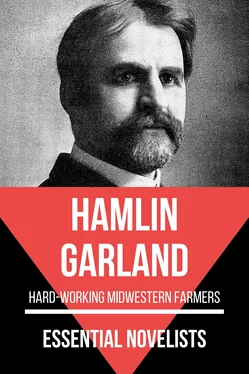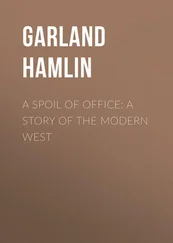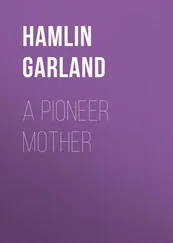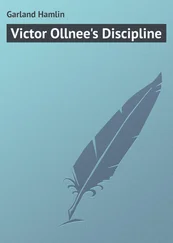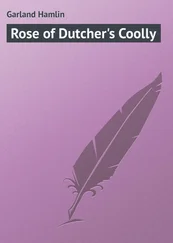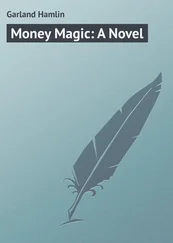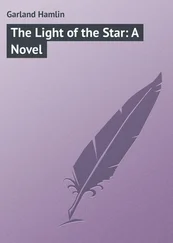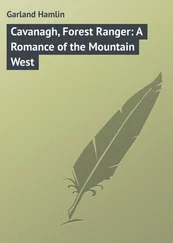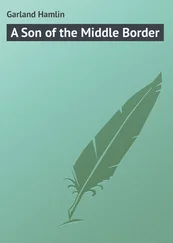As I drew aside to let him pass the doctor called out with mellow cheer, "Take your time, boy, take your time!"
Before I could even think of an answer, he was gone and I was alone with Kit and the night.
My anxiety vanished with him. I had done all that could humanly be done, I had fetched the doctor. Whatever happened I was guiltless. I knew also that in a few minutes a sweet relief would come to my tortured mother, and with full faith and loving confidence in the man of science, I jogged along homeward, wet to the bone but triumphant.
Wheat and the Harvest
The early seventies were years of swift change on the Middle Border. Day by day the settlement thickened. Section by section the prairie was blackened by the plow. Month by month the sweet wild meadows were fenced and pastured and so at last the colts and cows all came into captivity, and our horseback riding ceased, cut short as if by some imperial decree. Lanes of barbed wire replaced the winding wagon trails, our saddles gathered dust in the grain-sheds, and groves of Lombardy poplar and European larch replaced the tow-heads of aspen and hazel through which we had pursued the wolf and fox.
I will not say that this produced in me any keen sense of sorrow at the time, for though I missed our horse-herds and the charm of the open spaces, I turned to tamer sports with the resilient adaptability of youth. If I could not ride I could at least play baseball, and the swimming hole in the Little Cedar remained untouched. The coming in of numerous Eastern settlers brought added charm to neighborhood life. Picnics, conventions, Fourth of July celebrations—all intensified our interest, and in their increasing drama we were compensated, in some degree at least, for the delights which were passing with the prairie.
Our school-house did not change—except for the worse. No one thought of adding a tree or a vine to its ugly yard. Sun-smit, bare as a nose it stood at the cross-roads, receiving us through its drab door-way as it had done from the first. Its benches, hideously hacked and thick with grime, were as hard and uncomfortable as when I first saw them, and the windows remained unshaded and unwashed. Most of the farm-houses in the region remained equally unadorned, but Deacon Gammons had added an "ell" and established a "parlor," and Anson Burtch had painted his barn. The plain began to take on a comfortable look, for some of the trees of the wind-breaks had risen above the roofs, and growing maples softened the effect of the bleak expanse.
My mother, like most of her neighbors, still cooked and served meals in our one living room during the winter but moved into a "summer kitchen" in April. This change always gave us a sense of luxury—which is pathetic, if you look at it that way. Our front room became suddenly and happily a parlor, and was so treated. Mother at once got down the rag carpet and gave orders for us to shake out and bring in some clean straw to put under it, and when we had tacked it down and re-arranged the furniture, it was no longer a place for muddy boots and shirt-sleeved shiftlessness, it had an air of being in perpetual Sabbath leisure.
The Garlands were not so poor as all this would seem to imply, for we were now farming over three hundred acres of land and caring for a herd of cattle and many swine. It merely meant that my father did not feel the need of a "best room" and mother and Harriet were not yet able to change his mind. Harriet wanted an organ like Mary Abby Gammons, mother longed for a real "in-grain" carpet and we all clamored for a spring wagon. We got the wagon first.
That bleak little house is clearly defined in my mind at this moment. The low lean-to kitchen, the rag-carpeted sitting room with its two chromos of Wide Awake and Fast Asleep —its steel engraving of General Grant, and its tiny melodeon in the corner—all these come back to me. There are very few books or magazines in the scene, but there are piles of newspapers, for my father was an omnivorous reader of all things political. It was not a hovel, it was a pioneer cabin persisting into a settled community, that was all.
During these years the whole middle border was menaced by bands of horse-thieves operating under a secret well-organized system. Horses disappeared night by night and were never recovered, till at last the farmers, in despair of the local authorities, organized a Horse Thief Protective Association which undertook to pursue and punish the robbers and to pay for such animals as were not returned. Our county had an association of this sort and shortly after we opened our new farm my father became a member. My first knowledge of this fact came when he nailed on our barn-door the white cloth poster which proclaimed in bold black letters a warning and a threat signed by "the Committee."—I was always a little in doubt as to whether the horse-thieves or ourselves were to be protected, for the notice was fair warning to them as well as an assurance to us. Anyhow very few horses were stolen from barns thus protected.
The campaign against the thieves gave rise to many stirring stories which lost nothing in my father's telling of them. Jim McCarty was agent for our association and its effectiveness was largely due to his swift and fearless action. We all had a pleasant sense of the mystery of the night riding which went on during this period and no man could pass with a led horse without being under suspicion of being either a thief or a deputy. Then, too, the thieves were supposed to have in every community a spy who gave information as to the best horses, and informed the gang as to the membership of the Protective Society.
One of our neighbors fell under suspicion at this time and never got clear of it. I hope we did him no injustice in this for never after could I bring myself to enter his house, and he was clearly ostracized by all the neighbors.
As I look back over my life on that Iowa farm the song of the reaper fills large place in my mind. We were all worshippers of wheat in those days. The men thought and talked of little else between seeding and harvest, and you will not wonder at this if you have known and bowed down before such abundance as we then enjoyed.
Deep as the breast of a man, wide as the sea, heavy-headed, supple-stocked, many-voiced, full of multitudinous, secret, whispered colloquies,—a meeting place of winds and of sunlight,—our fields ran to the world's end.
We trembled when the storm lay hard upon the wheat, we exulted as the lilac shadows of noon-day drifted over it! We went out into it at noon when all was still—so still we could hear the pulse of the transforming sap as it crept from cool root to swaying plume. We stood before it at evening when the setting sun flooded it with crimson, the bearded heads lazily swirling under the wings of the wind, the mousing hawk dipping into its green deeps like the eagle into the sea, and our hearts expanded with the beauty and the mystery of it,—and back of all this was the knowledge that its abundance meant a new carriage, an addition to the house or a new suit of clothes.
Haying was over, and day by day we boys watched with deepening interest while the hot sun transformed the juices of the soil into those stately stalks. I loved to go out into the fairy forest of it, and lying there, silent in its swaying deeps, hear the wild chickens peep and the wind sing its subtle song over our heads. Day by day I studied the barley as it turned yellow, first at the root and then at the neck (while the middle joints, rank and sappy, retained their blue-green sheen), until at last the lower leaves began to wither and the stems to stiffen in order to uphold the daily increasing weight of the milky berries, and then almost in an hour—lo! the edge of the field became a banded ribbon of green and yellow, languidly waving in and out with every rush of the breeze.
Читать дальше
